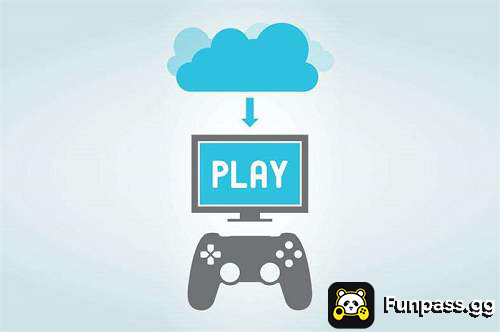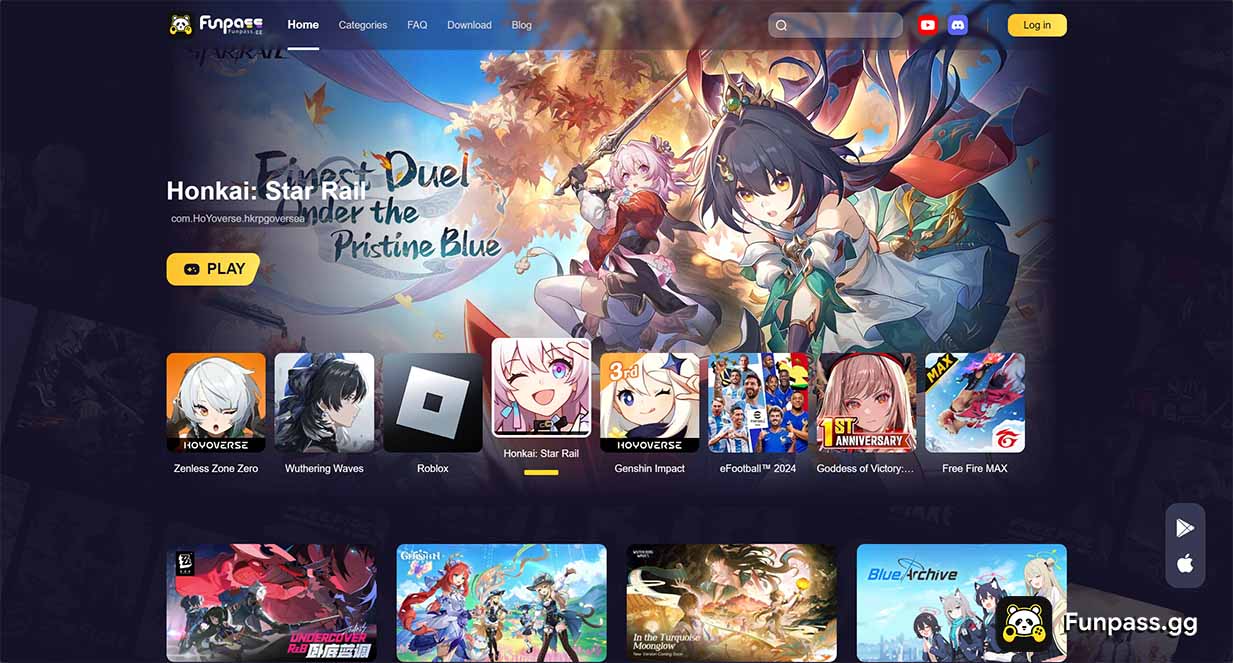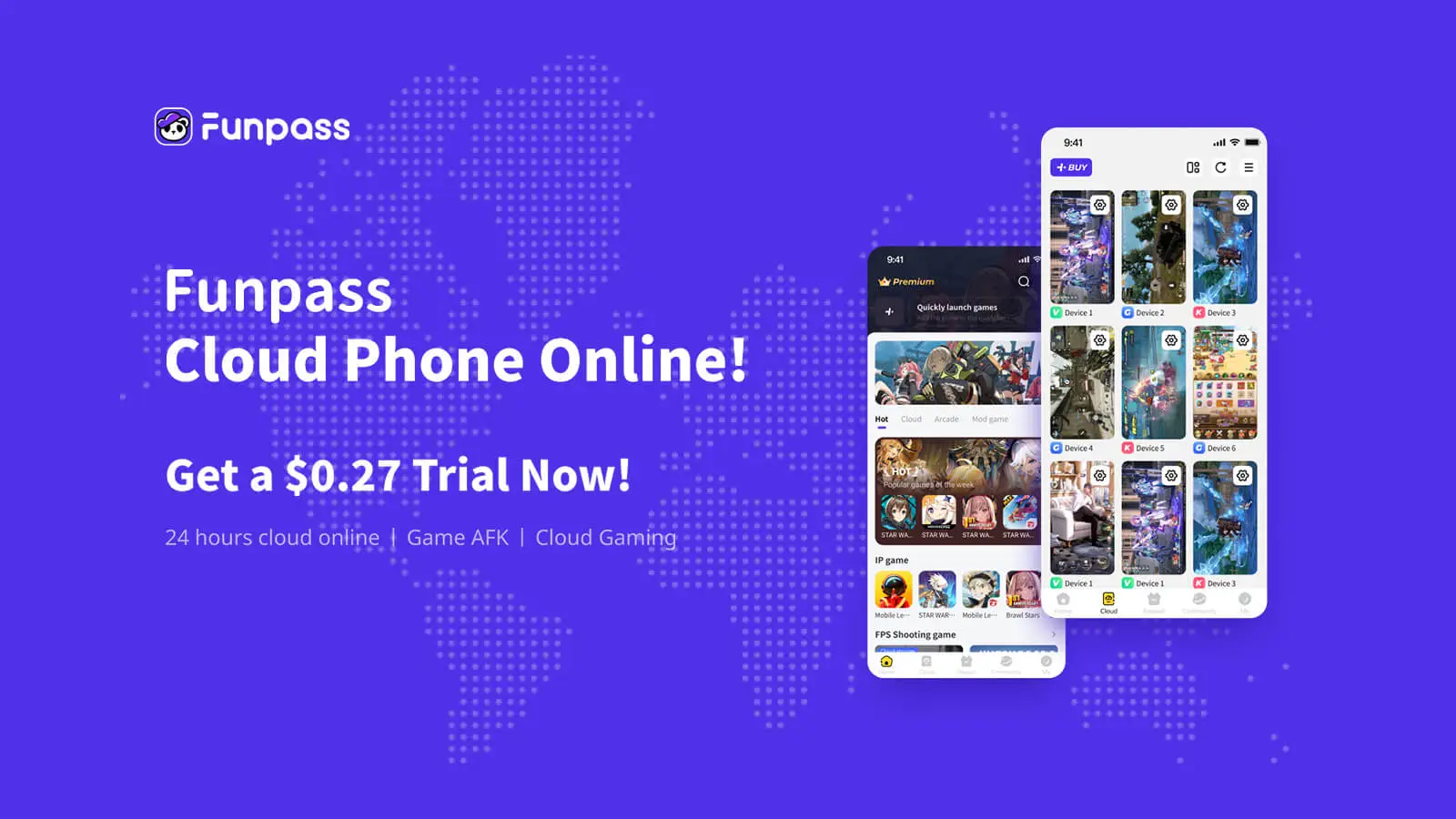What is Cloud Gaming?
Cloud gaming is a new form of gaming that is based on cloud computing technology. Its core concept is to transfer the computational and rendering tasks of gaming from local devices to cloud servers for processing, and then transmit the images, sounds, and other content back to the player's terminal devices through the network. The working principle of cloud gaming is to input each player's instructions to the cloud server for real-time rendering, with all computational and rendering tasks directly completed by the cloud server. This operating method greatly reduces the configuration requirements for the player's terminal device, allowing players to play various games with limited equipment.

Pros of Cloud Gaming
Reduced equipment costs
Cloud gaming eliminates the need for high-end equipment because all the heavy computing is handled by cloud servers. You only need your current device and a stable internet connection to enjoy gaming.
Multi-Device Compatibility
Cloud gaming supports multiple terminal devices, including PCs, mobile phones, tablets, etc., allowing users to experience games on any terminal without being limited to specific devices.
Instant Access to Games
Cloud gaming provides instant start-up and update services. When players want to play a certain game, they do not need to download and install it, saving a lot of waiting time for players
Enhanced Fluidity in Gaming
Cloud servers can achieve high-speed, large-capacity, low-latency data transmission, allowing players to play high-definition AAA games (like GTA and Fortnite) smoothly on the terminal interface.
Save Storage Space
All game data is stored in the cloud storage of the cloud gaming platform, and players do not need to occupy a large amount of storage space on local devices.
Easy Maintenance and Updates
With cloud gaming, all game maintenance and updates are managed by the cloud gaming service provider, so players don’t have to worry about a thing. Just log in to the cloud gaming platform, click to play, and you’re instantly in the latest version of the game. Jump right into the Preview of Genshin Impact 5.0 update for its 4th Anniversary on August 28, 2024, play Genshin Impact online on Funpass.

Cons of Cloud Gaming
Network dependency
The operation of cloud gaming highly depends on the quality of the network environment. An unstable network or insufficient bandwidth will affect the cloud gaming experience of players.
Latency issues
Data transmission between cloud servers and player terminals may cause latency, affecting real-time response and the gaming experience of players.
Limited game library
Although cloud gaming platforms provide a rich game library, there are still certain limitations compared to traditional games, especially for some specific game types or the latest games, there may still be a certain lag.
Data security risks
User data may have security risks during transmission and storage, requiring strict data encryption and security measures.
High Data Usage
Gaming consumes a lot of data, which may be a problem for users with limited data plans.
Technical Challenges
Cloud gaming technology is still in development and needs to solve technical problems such as latency optimization, data compression, and transmission efficiency. Before cloud gaming service providers solve this problem, it may lead to a poor gaming experience for some players.
Current Status of Cloud Gaming
The cloud gaming market is growing rapidly, with the global market size expected to reach nearly $7.7 billion by 2026, boasting a compound annual growth rate (CAGR) of 48.2% from 2020 to 2027. This growth shows that cloud gaming is becoming increasingly important worldwide. Big companies like Microsoft and Amazon are leading the way, offering tailored services and strong ecosystem support to boost the development of cloud gaming. Technological advancements, such as the popularization of 5G and innovations in cloud computing, ensure smooth cloud gaming operations, enhancing service quality and user experience.
Key global cloud gaming platforms include Google's Stadia, Microsoft's xCloud, Amazon's Luna, Nvidia's GeForce Now, Facebook Cloud Gaming, and Funpass. These platforms attract a large user base by offering a vast game library and a high-quality gaming experience. Funpass, in particular, stands out as a significant player in the cloud gaming market. It optimizes its technology to deliver an exceptional experience, even on low-end devices. Funpass's powerful cloud transmission capabilities help overcome technical barriers, significantly reducing game latency and providing an ultra-smooth, high-definition gaming experience.

Future Development Trends of Cloud Gaming
As cloud computing, 5G networks, edge computing, and other technologies continue to advance, the cloud gaming experience will see significant improvements. These technological innovations will help reduce game latency, enhance image quality, and broaden the use cases for cloud gaming. With the popularization of 5G, the cloud gaming market is expected to keep growing rapidly, potentially becoming one of the most immediate applications of 5G technology. The market size for cloud gaming could reach hundreds of billions of dollars.
Looking ahead, the cloud gaming industry will likely aim to integrate its entire value chain, creating a comprehensive industry layout to boost product competitiveness and market vitality. Cloud gaming platforms will increasingly focus on enhancing the user experience by optimizing network transmission, improving rendering capabilities, and enhancing interaction quality, providing users with smoother and more immersive gaming experiences.
As cloud gaming becomes more popular, new business models will continue to emerge, such as subscription plans and pay-per-play systems, generating new revenue streams for cloud gaming platforms. Additionally, cloud gaming will increasingly integrate with other emerging industries to build a new ecosystem for information infrastructure, driving the advancement of digital technologies.
The future of cloud gaming will be dynamic, with significant technological breakthroughs, rapid market expansion, value chain integration, and the development of new user experiences and business models, all of which will drive innovation and growth across the industry globally.

Conclusion
Cloud gaming is an emerging gaming model that, despite some current technical and experience limitations—such as network latency and image compression issues—holds significant development potential and a profound impact on the gaming industry. As 5G networks become more widespread and cloud computing technology continues to advance, the network requirements for cloud gaming will be better met, gradually enhancing the gaming experience.
Cloud gaming is set to overcome the hardware limitations of traditional gaming, enabling players to enjoy high-quality gaming experiences on various devices without the need to purchase or maintain expensive gaming equipment. This growing accessibility is a key reason why the cloud gaming market is expanding. It not only lowers the entry barriers for gaming but also introduces new business models for game developers, such as subscription services, which could lead to new revenue streams in the gaming industry.
Looking ahead, as technology continues to mature and the market gradually embraces cloud gaming, it is expected to become a mainstream gaming method, reaching a broader audience and fostering innovation within the gaming industry. If you’re looking to experience high-quality cloud gaming, consider trying the Funpass cloud gaming platform. With a wide selection of games, instant play, quick response times, and a smooth gaming experience, Funpass makes high-end equipment unnecessary. All you need is internet access—no downloads, no waiting. Click the link below to start gaming on the Funpass cloud platform: www.funpass.gg. Join Funpass for an extraordinary gaming adventure!




